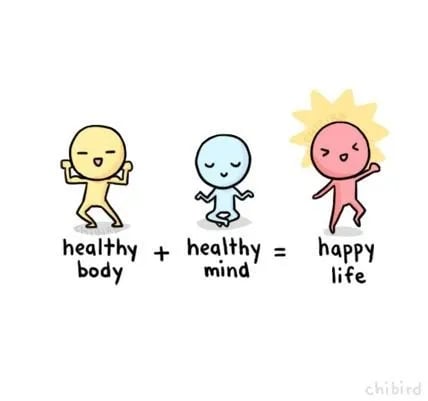
THE MIND-BODY CONNECTION
WHY INVEST IN COUNSELING?
Therapy sessions are like maintenance check-ups for your mind, just as medical appointments are for your body.
Imagine your mind as a complex and intricate machine, much like your body. Just as you go to a doctor for regular medical appointments to ensure your body is functioning well and catch any issues early, therapy sessions serve a similar purpose for your mental and emotional well-being.
In therapy sessions, you have the opportunity to sit down with a trained professional who acts as a "mind doctor." You discuss your thoughts, emotions, and experiences, much like you would describe physical symptoms to a medical doctor. The therapist helps you explore your mental landscape, identify any areas of concern or potential challenges, and provides guidance to improve your mental health.
Just as a medical appointment might involve running tests or taking measurements to assess your physical health, therapy sessions involve exercises, discussions, and techniques that help you understand and improve your mental health. This proactive approach allows you to catch emotional struggles or patterns early, much like a medical check-up helps to catch potential health problems before they worsen.
Ultimately, both therapy sessions and medical appointments are forms of proactive care. They empower you to actively manage your well-being, whether it's your mental state or physical health, leading to a healthier and more balanced life overall.


THE MIND-BODY CONNECTION
Having a healthy mind is equally, if not more, important than physical health. The well-being of your mind and your body are interconnected and together contribute to your overall quality of life. Here's why a healthy mind is significant:
Mental Health Affects Physical Health: Your mental state can impact your physical health. Stress, anxiety, and depression, for instance, can lead to physical symptoms and even contribute to the development of certain illnesses.
Quality of Life: A healthy mind enhances your overall well-being, happiness, and life satisfaction. It allows you to experience and enjoy life to the fullest.
Coping and Resilience: A strong mental state equips you with effective coping mechanisms, making it easier to handle challenges, setbacks, and stressors.
Interpersonal Relationships: Good mental health fosters positive relationships. It enables you to communicate better, empathize with others, and maintain healthy connections.
Achieving Goals: A healthy mind helps you set and achieve goals, whether they're related to your career, personal growth, or other areas of life.
Creativity and Problem-Solving: A clear and healthy mind encourages creative thinking and effective problem-solving.
Emotional Regulation: Mental well-being enables you to manage and regulate your emotions, leading to healthier reactions and responses.
Prevention and Recovery: A focus on mental health can help prevent the onset of mental illnesses and aid in recovery if you're facing challenges.
Overall Longevity: Numerous studies have shown that individuals with good mental health tend to live longer and enjoy a higher quality of life as they age.
Holistic Health: True well-being involves a balance between physical and mental health. Ignoring one aspect can lead to an imbalance and impact your overall wellness.
Incorporating practices that promote a healthy mind, such as mindfulness, stress management, seeking support when needed, and practicing self-care, can lead to a more fulfilling and enriching life. Remember, taking care of your mental health is a vital part of taking care of yourself as a whole.

